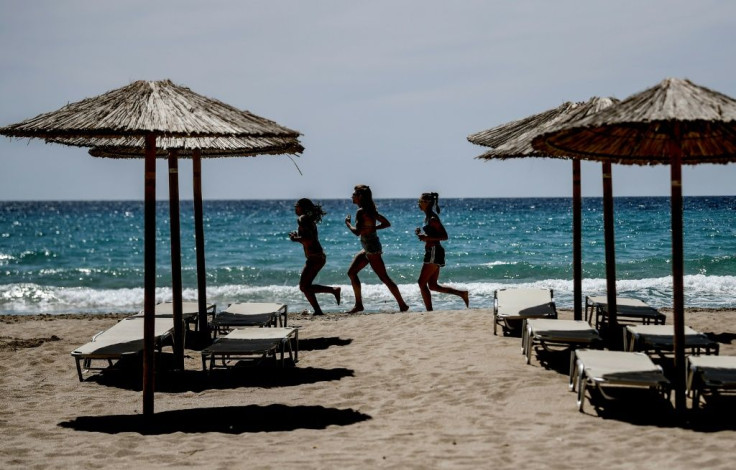EU Deal On Covid Pass Paves Way For Summer Travel
The European Parliament and EU member states reached a deal Thursday paving the way for a Covid-19 certificate that will help open up travel in Europe for the key summer season.
"We have white smoke," tweeted EU justice commissioner Didier Reynders after a fourth negotiating session between MEPs and diplomats from Portugal, which holds the EU's six-month rotating presidency.
The deal will allow for anybody living in the EU's 27 countries to secure a digital health pass by the end of June that displays their vaccination status, results of Covid-19 tests or whether they have recovered from a coronavirus infection.
It is seen as a key tool to save the European summer vacation period, allowing countries dependent on tourists to reopen to visitors less likely to bring Covid with them.
"This is an important step towards restarting EU free movement as safely as possible, while providing clarity and certainty for our citizens," said EU health commissioner Stella Kyriakides.
Other countries around the world have moved in the same direction, including Israel with its "green pass", and Britain, which has told its citizens that some international travel will be permitted with an app from its National Health Service (NHS).
The EU's health pass will initially be used only for travel within the European bloc and will be legally valid for 12 months. Any extension will require a new legislative process.
According to negotiators, MEPs failed in a bid to make free Covid tests available to all unvaccinated citizens, securing only a call for "affordable" testing across the EU.
The European Commission also promised to make at least 100 million euros ($122 million) available for the purchase of rapid tests.

In addition, the deal allows for member states to recognise vaccines that are not authorised in the EU -- a demand of Hungary, which has relied heavily on unapproved Russian and Chinese vaccinations for its rollout.
Liberal MEP Sophie in 't Veld regretted that the Parliament had not been able to push through its more far-reaching demands. Nevertheless, she described the agreement as "a tangible step forward for citizens".
France, Malta and the Netherlands are among the countries piloting the EU's pass.
The test involves making sure that digital keys used to authenticate the passes work correctly, and that it is interoperable across different countries' systems.
The pass, while mostly designed to be accessed via a smartphone app, also has to be able to be authenticated in paper form. The technology was developed by German companies T-Systems and SAP.
The certificate is on the agenda of the summit of European heads of state and government scheduled for Monday and Tuesday in Brussels.
Thursday's agreement will then have to be formally approved by a full session of the European Parliament, whose plenary is scheduled for June 7-10 in Strasbourg.
© Copyright AFP 2024. All rights reserved.





















